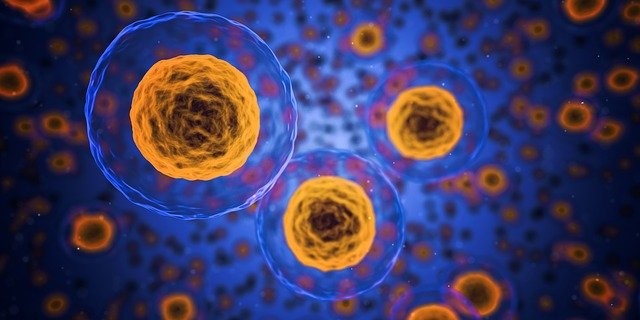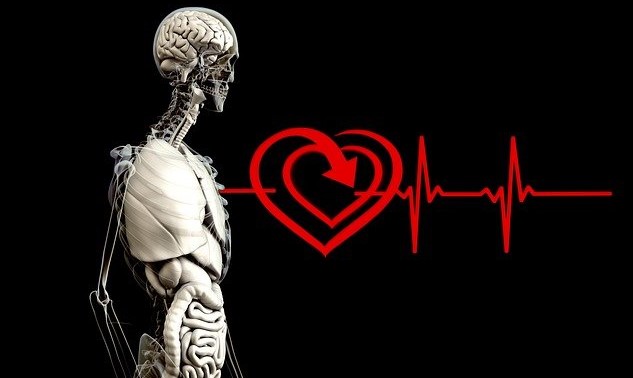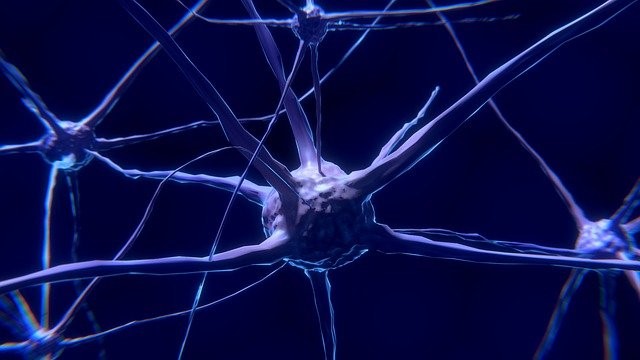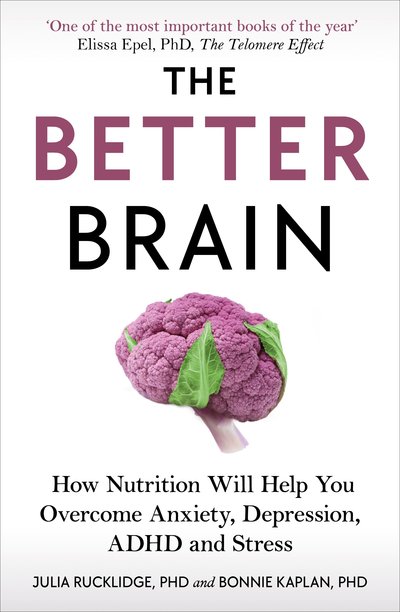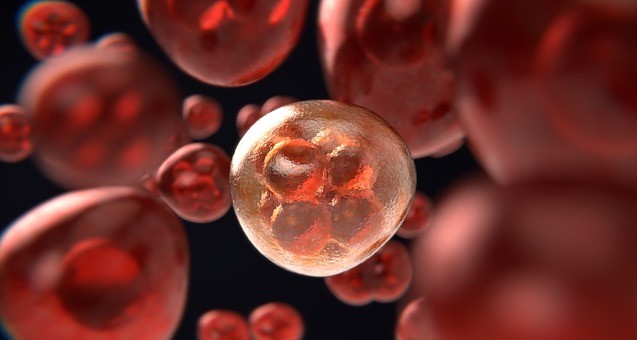The internet is full of nutrition advice, which of it is legit?
When I started my research on nutrition and how we can naturally heal our bodies, the amount of information and disinformation I found on the internet was overwhelming. I decided on a more scientific approach and signed up for various classes at renowned universities. I was taken back to biology and chemistry and also learned that nutrition is a relatively new field and much research is to be done, but there is enough knowledge out there to draw educated conclusions. As always, apply a good portion of common sense, be aware that there is a lot of misinformation out there, no information should be completely trusted, even scientific studies have flaws, everybody makes mistakes, so just stay critical.
Before I talk about what I have learned I want to quickly talk about the different types of nutrients. We need to distinguish between macronutrients (the big molecules), which are fat, protein and carbohydrates, and micronutrients which are vitamins and minerals. We need them all. Talking about heart disease and type 2 diabetes, we touch more on macronutrients, while talking about mental health concentrates more on micronutrients.
A Word about Macronutrients
Protein:
Protein is essential for growth and maintenance of bones, muscles and skin and many more functions in the body. Protein can come from animals (meat, dairy, fish, eggs) or plants (grains, legumes, nuts, vegetables, all of which are also called green proteins). Our typical western diet typically consists of 60% animal protein and 40% plant protein. A switch to 40% animal protein and 60% vegetable protein would be beneficial for our health.
Carbohydrates:
Primary source of energy for humans, play a large role in gut health and immune function
Carbs can be divided into 3 groups:
- Easily digestible,
- digestible and
- indigestible.
Easily digestible carbs are mainly sugars and can cause a rapid glucose peak in the blood.
Digestible carbs are starches, like from potatoes, rice and pasta, which consist of multiple sugar units, but take longer to digest than easily digestible carbs, but will also raise blood glucose
Indigestible carbs are dietary fibers like whole grains, fruits and nuts, are not digested by enzymes in the large intestines and therefore don’t cause blood sugar spikes. They keep us full longer and slow down the path of other nutrients through the intestines.
A high intake of dietary fibers are associated with lower risks of type 2 diabetes, coronary heart disease and stroke and also kidney disease.
Fats:
There are 3 types of fats: saturated fatty acids, monounsaturated fatty acids and polyunsaturated fatty acids. It is clear that we should reduce our intake of saturated fats, but when it comes to mono- and polyunsaturated fats, we have to look deeper. Whereas trans fatty acids (like in margarine, which are very bad for us) belong to the monounsaturated fats, so do olive oil and avocado oil, which are really good for us. The problem with polyunsaturated fats, which are mainly vegetable oils, is that the production of these oils include high heating and harmful chemicals and therefore I completely stay away from them, but at the same time include omega 3 fatty acids from fatty fish, which is so good for us. Therefore, my conclusion is to avoid saturated fats but include mono- and polyunsaturated fats after careful evaluation. We need to focus on the quality of fat, not on the total amount of fat.
Nutrition, Heart Disease and Diabetes
We all have heard and read it and it is just so, the right diet can prevent and even cure heart disease and type 2 diabetes. I was able to bring my cholesterol level to a normal range with nutrition and exercise alone, being able to ditch the terrible medication, which has several unwanted side effects.
It is all about risk factors, some we can influence, others not too much. While we cannot always manage our stress level, we can eliminate risk factors like smoking, being overweight, and cholesterol. Other risk factors include alcohol and salt. What I have learned at Wageningen University cemented the facts about food that we have all heard before, but on top of that it showed the scientific evidence and introduced the studies.
The overall aim of public health is to prevent complex diseases like cardiovascular disease, type 2 diabetes and obesity. These are complex diseases because there is not one, but many interactive causes. Therefore, the study of combined effects of lifestyle, environment, genetics, and other biological processes in the development of these diseases are especially of interest (i.e. DNA methylation, gut microbiome, epigenetics, diet-gene interactions, etc.).
Here a few interesting facts:
There is no convincing evidence that eating plant protein is better for cardiometabolic health than eating animal protein.
People who eat a diet rich in meat seem to have less healthy bacteria in the gut. Several studies suggest a link between gut bacteria, obesity and diabetes.
A daily intake of 100 grams of unprocessed red meat was associated with a 10% higher risk of stroke and a 15% higher risk of type 2 diabetes. Risks of coronary heart disease and chronic kidney disease were also increased. Here we also need to consider the saturated fat in meats, how the animals are raised (hormones and antibiotics) and the often unhealthy side dishes that come with meat consumption.
Recent studies have shown that eating up to an egg a day does not increase our cardiometabolic risk.
Only one fish meal a week is linked to a 15% lower risk of dying from coronary heart disease. Fish may also protect against stroke. It is less clear if fish protects against diabetes.
Prospective cohort studies suggest that dairy consumption may give some protection against stroke and chronic kidney disease.
Plant foods like whole grains, vegetables, nuts, and legumes can improve cardiometabolic health.
Mental Health and Nutrition
While my course in nutrition, heart disease and diabetes showed no real surprises, but explained the biology in more detail, the course “Mental Health and Nutrition” basically left me speechless (for a while). It was so interesting that I am still reading materials on the topic. I only wish I had known all this before I had children. They would have grown up on different foods. Now it can be a struggle to change their eating habits.
First I want to introduce you to Dr. Julia Ruthlidge, PhD. She is a professor of clinical psychology at the University of Canterbury in New Zealand. Her 2014 TED talk was viewed over 1.7 Million times. Here is the link:
Dr. Julia Ruthlidge: The surprisingly dramatic role of nutrition in mental health https://www.youtube.com/watch?v=3dqXHHCc5lA
She also recently published a book on the topic together with Dr. Bonnie Kaplan, PhD. It is a really great read, especially for parents:
Here a few facts about mental health and the correlation of mental health and nutrition:
We are in a mental health crisis.
Over 20% of the world population is struggling with mental health issues.
The CDC estimates that 50% of us will suffer from a mental health issue over our lifetime.
Suicide rates globally are at an all-time high.
It is estimated that about 17% of all adults are currently on anti-anxiety, antidepressant or antipsychotic medication.
Sometimes medication is a necessary treatment for mental conditions and can save lives.
If medication really was the answer, why don’t we see a decline in cases?
Trials have shown that giving micronutrients (vitamins and minerals) on top of what is obtained through diet alone can have a positive impact on conditions like attention-deficit/hyperactivity disorder (ADHD), autism or anxiety.
In this day and age, nutritional value is not the main focus in food processing, but rather food storage, growth rates, transportability, shelf life, color, shape, and size.
Our Western diet typically consists of ultra processed foods high in calories, refined grains, and sugar, high in chemicals but low in produce.
Mental health conditions are caused by inflammation in the brain which causes our brain cells to die. It all starts in our guts and is associated with a lack of nutrients from our food.
Although the brain only accounts for 2% of our body weight, it uses 40% of our nutrient intake.
Brain development requires many nutrients like essential fatty acids, vitamins and minerals, which we mostly cannot synthesize ourselves, which means that we have to take them in through our food.
B vitamins and vitamin C are water soluble, so if we eat too much, the rest can be excreted. Vitamins A, D, E, and K are fat soluble and excess is stored in the body, which can become harmful.
If we eat a diet rich in nutrient-dense real foods, we can get the necessary vitamins and minerals for our brains through our food, but a diet rich in processed foods only supplies a few and the brain will be vitamin and mineral deficient.
A few survey results from the course: 94% of the US population do not even meet the daily requirement for vitamin D, 89% for vitamin E, 52% for magnesium, 44% for calcium, 43% for vitamin A, and 39% for vitamin C.
Nutrients can help switch genes on and off with a process called methylation. They also help repair breaks in our DNA.
Nutrients are required to help our body with detoxification, like from the chemicals we are exposed to. A diet rich in antioxidants (i.e. vitamin C) can help terminate the chain reactions that can produce free radicals, which can damage our DNA and other cells which can cause illness and aging.
Dozens of studies show that the more we eat whole, real foods, the better our mental health will be.
Another study showed that a western diet of processed or fried foods, refined grains, sugary products, and beer was associated with more mental health symptoms.
Quite a few studies link fish consumption with good mental health. Low seafood consumption is associated with greater risk for depression, bipolar disorder, homicide, and suicide.
The enzymes which are required for the metabolic processes of the neurotransmitters in our brains are often dependent on vitamins and minerals to do their jobs. Through micronutrient treatment enzymes could return to normal function without medication.
So what should we really eat?
The top 10 raw foods related to better mental health are: carrots, bananas, apples, dark leafy greens, grapefruit, lettuce, citrus fruits, fresh berries, cucumber, kiwi.
Tryptophan: an essential amino acid that cannot be produced by the human body and must be obtained through protein sources. It plays a role in the production of serotonin, a mood stabilizer, melatonin, which helps regulate sleep, and vitamin B-6. It is found in milk, canned tuna, turkey and chicken, oats, cheese, bread, chocolate, and fruits.
Sourdough bread has a lower glycemic index than white bread. Also recommended is sprouted whole grain bread.
Potato starch will gelatinize when the potatoes are let cool, which is good for digestion.
When letting garlic rest for about 20 minutes after chopping it releases antioxidants.
Fresh garlic is better than garlic from a jar because it has a higher phytochemical content.
Avocados are super healthy, contain lots of fiber and good fat.
Fresh produce in different colors mean different phytochemicals
- Reduce oxidative stress
- Provide fiber
- Full of vitamins and minerals
Meat contains a lot of Vitamin B, among others, and a lot of nutrients. Meat close to the bone contains the most nutrients.
Cheese is high in nutrients. Best is goats and sheeps cheese, because it contains no A1 casein protein which is inflammatory.
In this article you can find a list of antidepressant animal as well as plant foods with their AFS (antidepressant food score):
https://www.inverse.com/mind-body/antidepressant-diet-44-foods-may-fight-depression
Nutrition and Cancer
I also took a class on Nutrition and Cancer. Unfortunately, there are not a lot of studies available.
What I have learned though is interesting:
In Western countries, about 1 in 3 people will get cancer in their lifetime. Cancer causes 1 in 6 deaths worldwide. In adults it is estimated that some cancers can take 30 to 40 years to develop. A healthy body needs healthy cells to die and to be renewed and replaced constantly. In cancer cells, for several reasons, i.e. exposure to harmful chemicals, there are changes in the DNA and cells, and, instead of dying, they will grow uncontrollably and mutate, some of them indefinitely.
While heart disease, diabetes and certain mental conditions can not only be prevented but also cured with nutrition, cancer is completely different. Actually, there is no scientific evidence available that cancer can be treated with nutrients, but some cancers can be prevented. There are many different types of cancer (a group of more than 100 diseases), some of them hereditary, so prevention does not always work. Nevertheless, some cancers can be prevented with a healthy lifestyle and good nutrition, and it is worth our while because in the process we become healthier and prevent cardiometabolic disease and certain mental illnesses and declines.
The Takeaway
There are many diseases and ailments we can prevent, some even cure with the right lifestyle. We need to eat more plant foods, less saturated fat, and most of all avoid ultra processed foods, sugar and too much salt. Together with exercise we can build a good foundation for a long and most of all a healthy life.
Please visit my website www.foodiewithpurpose.com for more information and new recipes every week

